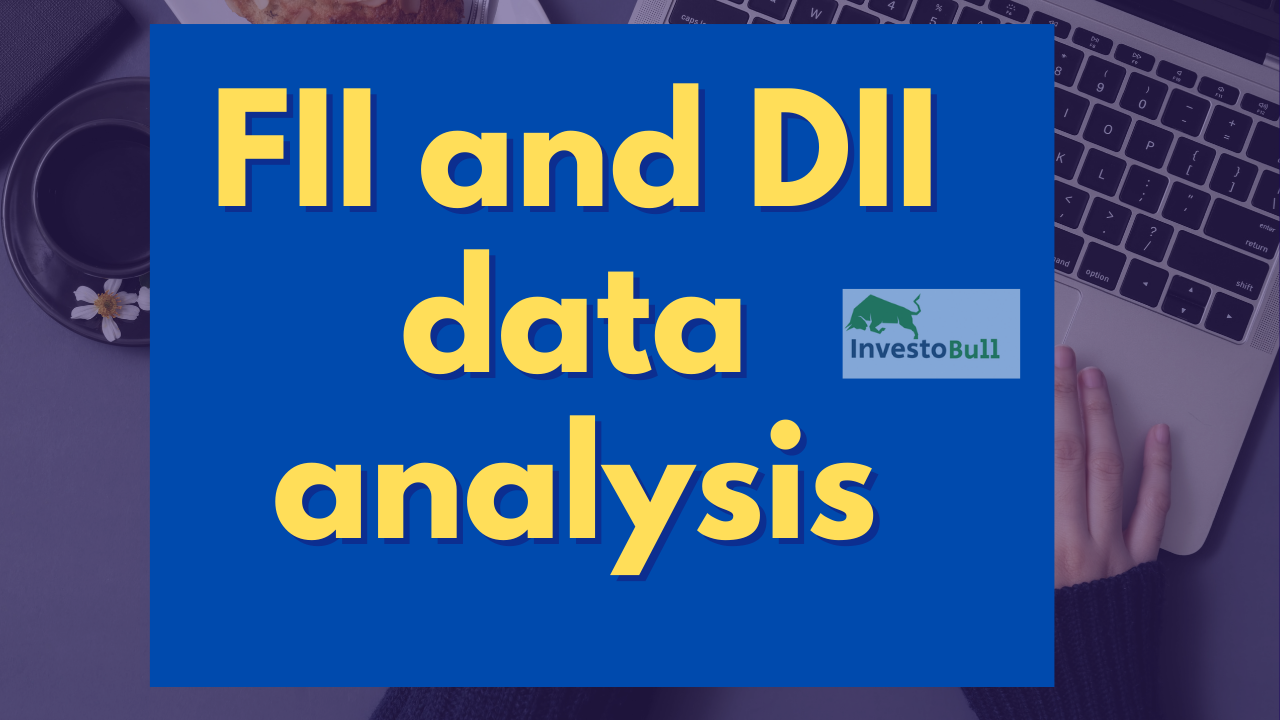In the stock market world, retail investors are holding a small portion of stocks, and Institutional investors dominate the major activity. Institutional Investors hold hedge funds, insurance companies, pension funds, and mutual funds. These institutional investors are the backbone of the market because they can change the market trend at any time. If the institutional investors are buying stocks, then the market trend will be bullish, and if the institutional investors are selling their positions, then the market will be in the bearish trend. The institutional investors are classified into two types
- FII Full form is Foreign Institutional Investors
- DII Full form is Domestic Institutional Investors
There are several types of investors in the stock market. Everyone can invest in their own country by using their identity proof. As of now, there are more than 1500 Foreign Institutional Investors registered with SEBI, an organization that will control the stock market in India.
Table of Contents
What is FII?
FII:- Foreign Institutional Investors are those investors who are investing in India, but they do not form India. They can be Mutual funds, insurance companies from any country. FIIs are the most significant companies in our Indian stock market. It can help us to increase our economy.
Ex:- Morgan Stanley, J.P. Morgan, etc.
What is DII?
DII:- Domestic Institutional Investors are Indian investors who are investing in the Indian stock market for getting high returns. DIIs can invest in Insurance Companies, Mutual Funds, Liquid Funds, etc.
Ex:- Life Insurance Corporation is the largest Domestic Institutional Investors in India.
Where can you find DII FII DATA
Previously, It is tough to get real-time data on FII & DII activity. Unless you are a stockbroker, you must also have the approval to take the real-time data from the stock exchange. But, now, many stock market websites are providing the DIIs and FIIs data. The best source form all the websites is NSEindia.
It is very easy to find nse fii data on the website when compared to others where you have to specify the date to get the data from a specific period. You can only see the fii data nse for less than one year.
Investors can also download the data by clicking the link FII and DII
In NSE, you can find the following data.
- FII derivatives statistics
- Participant wise Open Interest
- Complete DII and FII Buy Sell data on Options(fii in f&o)
- Buy and Sell data on Futures
- Buy and sell data on cash
How to Interpret FII DII DATA
To analyze the DII and FII trading activity data you need to find the past few days, if the FII is buying shares in the indian stock market then nifty moves up and can take a medium position and in the same way if the FII are continuously selling their shares in the stock market then Nifty may go down and can take a short position. In the below image you can find the FII and DII buying and selling amount.
Click on the link FII and DII Activity and register to view the complete details.
Why should you study the FII activity and DII activity in Share Markets?
Both FIIs and DIIs will buy and sell the stock in the markets, so the price will move upwards when they buy more shares in the market, in the same way, the price will move down when they sell their positions.
By viewing the FIIs and DIIs data, Investors can get complete details about the market trends ( whether it is moving in upward or downward). If the buyers are more by FII, we can clearly say that our Indian economy is growing. FII plays a major role when compared to DII in the Indian stock market.
How do they affect shares prices?
Since both the investors, DIIs and FIIs are big companies with vast economic resources, they have a lot of collected capital from investors for investment. Some of the companies like Morgan Stanley, HSBC, etc. come under FII’s while LIC, mutual fund houses like Kotak, HDFC, ICICI are coming under DIIs.
Buying assets in large amounts leads to an increase in the share price, and similarly, selling the assets can lead to decreased prices of the share. This is what results when FII and DII start buying and selling. FII DII activity can also help you build an effective stock market, but their immediate actions can lead to a stock market crash.
FAQs
How to find FII and DII activity?
All stock exchanges will update FII / DII activity on their respective website. A simple approach to find out the latest FII and DII activity for specific stocks is to analyze the recent shareholding patterns. Here are the list of websites that provide all the FIIs and DIIs activity.
- NSE India
- BSE India
- Intradayscreener
- Moneycontrol
Why are FII and DII opposite?
FIIs and DIIs have their own parameters. FII looks for global opportunities, whereas DIIs look for domestic opportunities. Both activities will always invest in well-developing companies.
How does FII trade in India?
Only with the country’s portfolio investment scheme (PIS) investors can start their FIIs invest in India’s primary and secondary markets. In this scheme, FIIs are permitted to buy shares and debentures of Indian firms on the regular public exchanges in India.
What is the difference between FDI and FII?
Foreign Direct Investment (FDI), as the name implies, is investing directly in a different country. A foreign firm based on the different country like the USA invests in India. They can invest in joint ventures with some companies based in India to start their business.
Foreign Institutional Investors are those investors who are investing in India, but they do not form India. They participate in the secondary market of the economy. They can be Mutual funds, insurance companies from any country. FIIs are the most significant companies in our Indian stock market. It can help us to increase our economy.
Recommended Brokers
 | No 1 STOCKBROKER IN INDIA Zerodha Free equity & mutual fund investments | Flat ₹20 intraday and F&O trades | Rating ★★★★★ | APPLY NOW |
 | GET FREE DEMAT ACCOUNT Upstox Fix brokerage of Rs. 20 per trade | Rating ★★★★ | APPLY NOW |
 | GET FREE DEMAT ACCOUNT Angel Broking 0 Brokerage on Equity Delivery | Rs 20 per order for Intraday and F&O trades | Rating ★★★★★ | APPLY NOW |


















Leave a Reply